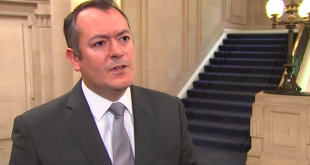During a big week for UK racing at Cheltenham, gambling licensing law firm Poppleston Allen has warned that bettors might have to undergo affordability checks.
Last year, The Jockey Club reported 280,000 attendees over the four-day event, and OpenBet – the platform that took bets for operators such as William Hill, Ladbrokes, Paddy Power, SkyBet and Betfair – processed bets worth over £500m.
In the context of the upcoming Gambling Act review White Paper there has reportedly been ‘credible rumours’ that the government’s regulatory overhaul on gambling reform will propose mandatory limits.
Felix Faulkner, solicitor at Poppleston Allen, said: “Since last year’s major racing events took place, we’ve seen a rise in bookmakers undertaking affordability checks and asking players to provide documentation such as payslips and bank statements to prove they can afford to gamble.”
A recent report of more than 1,000 bettors carried out by YouGov for sports betting community OLBG found that 22% had been asked for payslips, bank statements or similar documents by at least one bookmaker.
As many occasional bettors prepare to have one of their first flutters of 2023, the law firm explained that if a betting company asks a customer for financial information and they are unable to provide it, the company is able to refuse to take the person’s bet.
“Bookmakers have a legal responsibility under their operating licence conditions to minimise the risk of customers experiencing gambling harm,” Faulkner continued. “If they have concerns a customer might be trying to bet more than they can afford, it is advisable they refuse the bet.”
Notably, the UK Gambling Commission (UKGC) does not set limits or thresholds at which gambling companies need to ask for proof customers can afford their gambling.
The debate around current affordability checks has seen UKGC CEO Andrew Rhodes claim that no measures are currently in place, but the Betting and Gaming Council (BGC) and other stakeholders have countered that operators are already under pressure to do so.
Faulkner added: “There is an element of uncertainty in the market at present. The current
Gambling Commission guidance for premises-based operators, which applies to on-course bookmakers, states that Commission research found some operators had set ‘inappropriately high’ thresholds in the past.
“However, at present there are no hard and fast rules on what is an appropriate level that should prompt bookmakers to ask customers for proof their gambling is affordable to them. This has resulted in gambling companies setting their own rules on when it is appropriate to carry out financial checks on customers and this has led to some differences between bookmakers.
“It remains to be seen how the various on-course bookmakers will interpret the guidance this year. In practice it can be difficult for them to work out who can afford what if there is a race starting in one minute and there are 20 people waving money at them to put a bet on, however compliance with licence conditions is mandatory and operators should always act responsibly.”









